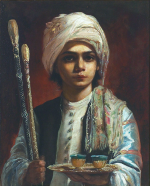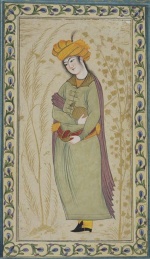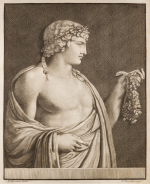Template:Did you know: Difference between revisions
From BoyWiki
No edit summary |
No edit summary |
||
| Line 6: | Line 6: | ||
* … that '''[[Tennessee Williams|Thomas Lanier Williams III]] - ''' (March 26, 1911 – February 25, 1983), known by his pen name Tennessee Williams, was an American playwright and screenwriter. Along with contemporaries Eugene O'Neill and Arthur Miller, he is considered among the three foremost playwrights of 20th-century American drama. <!-- Added 11-4-21--> | * … that '''[[Tennessee Williams|Thomas Lanier Williams III]] - ''' (March 26, 1911 – February 25, 1983), known by his pen name Tennessee Williams, was an American playwright and screenwriter. Along with contemporaries Eugene O'Neill and Arthur Miller, he is considered among the three foremost playwrights of 20th-century American drama. <!-- Added 11-4-21--> | ||
{{clr}} | {{clr}} | ||
[[File: | [[File:Cupbearer with orange turban. Persian miniature painting by the School of Reza Abbasi, ca. 1620. Iran, Safavid period.png|150 px|right|link=(Boylove Documentary Sourcebook) - The Medieval Persian Sufi Ritual Practice of "Shāhid-Bāzī", the Mystical Contemplation of Handsome Beardless Youths, as Featured in a Short Story from the 'Abode of Spring' by Jāmi of Herāt]] | ||
* … that '''[[(Boylove Documentary Sourcebook) - | * … that '''[[(Boylove Documentary Sourcebook) - The Medieval Persian Sufi Ritual Practice of "Shāhid-Bāzī", the Mystical Contemplation of Handsome Beardless Youths, as Featured in a Short Story from the 'Abode of Spring' by Jāmi of Herāt|The Medieval Persian Sufi Ritual Practice of "Shāhid-Bāzī", the Mystical Contemplation of Handsome Beardless Youths, as Featured in a Short Story from the 'Abode of Spring' by Jāmi of Herāt]] - ''' is from The Behâristân (Abode of Spring): A Literal Translation from the Persian (بهارستان Bǎhārestān, 1487) by Jâmi, anonymously translated by Edward Rehatsek, anonymously edited by Richard Francis Burton (Benares [actually Stoke Newington, England]: Printed by the Kama Shastra Society for Private Subscribers only, 1887). | ||
{{clr}} | {{clr}} | ||
[[File:Nicolaus Mosman and Niccolò Mogalli - Engraving after an ancient Roman marble bas-relief of Antinous as Vertumnus, the god of seasons. From Unpublished Ancient Monuments, Explained and Illustrated by Johann Joachim Winckelmann, 1767.png|150 px|right|link=Antinous]] | [[File:Nicolaus Mosman and Niccolò Mogalli - Engraving after an ancient Roman marble bas-relief of Antinous as Vertumnus, the god of seasons. From Unpublished Ancient Monuments, Explained and Illustrated by Johann Joachim Winckelmann, 1767.png|150 px|right|link=Antinous]] | ||
Revision as of 18:44, 3 May 2022

- … that A Defense of the Biographical Reputation of İshak Çelebi through His Portrayal as a Chaste Pederast in an Anecdote from 'The Essence of History' by Gelibolulu Mustafa 'Âlî is from "Naming the Beloved in Ottoman Turkish Gazel: The Case of İshak Çelebi (D. 1537/8)" by Selim S. Kuru, in Ghazal as World Literature II: From a Literary Genre to a Great Tradition.

- … that Thomas Lanier Williams III - (March 26, 1911 – February 25, 1983), known by his pen name Tennessee Williams, was an American playwright and screenwriter. Along with contemporaries Eugene O'Neill and Arthur Miller, he is considered among the three foremost playwrights of 20th-century American drama.

- … that The Medieval Persian Sufi Ritual Practice of "Shāhid-Bāzī", the Mystical Contemplation of Handsome Beardless Youths, as Featured in a Short Story from the 'Abode of Spring' by Jāmi of Herāt - is from The Behâristân (Abode of Spring): A Literal Translation from the Persian (بهارستان Bǎhārestān, 1487) by Jâmi, anonymously translated by Edward Rehatsek, anonymously edited by Richard Francis Burton (Benares [actually Stoke Newington, England]: Printed by the Kama Shastra Society for Private Subscribers only, 1887).
